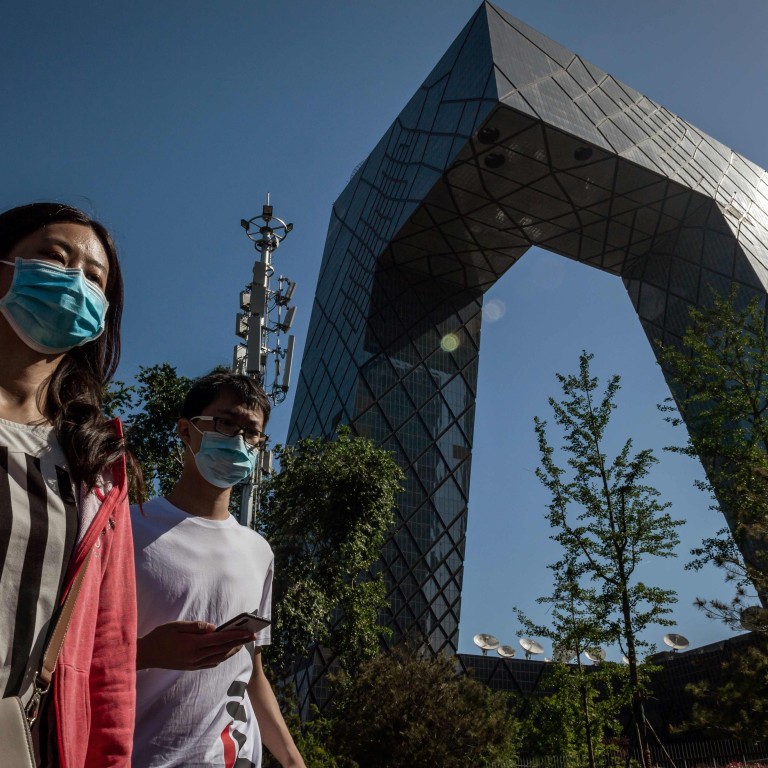
Chinese broadcaster CCTV says it ‘dares to fight Western media monopoly on public opinion’
- Article in party journal sets out how the broadcaster has used ‘offence as a means of defence’ with its coverage of events like the US Capitol riot
- Beijing has been locked in a narrative war with the West and President Xi Jinping has stressed the need to improve global communication
China’s main state-run television group CCTV says it has used “offence as a means of defence” against Western media with its coverage of events like the US Capitol riot and that it will continue to push back in the narrative battle.
“In recent years, the international communication power of the television station has significantly increased, and the overseas delivery capacity has greatly improved,” said the article, published under a collective byline of the CCTV party committee.
The television group also said it aimed to become world-class in new mainstream media with strong leadership, communication power and influence, and that it would take practical action to achieve these goals ahead of the party congress.
China has been locked in a narrative war with the West in recent years, with Xi repeatedly stressing the need to improve the country’s global communication – a task embraced by state media outlets like CCTV.
Last year Xi told a Politburo meeting that a “true, multidimensional and panoramic view of China” needed to be presented. He called for more to be done to develop its own discourse and narrative, introduce Chinese culture abroad and create an image of a reliable, admirable and respectable China, according to official news agency Xinhua.
It also listed CGTN’s coverage of the Capitol riot in Washington and on-the-ground reporting at the White House that it said offered “China’s voice” on the situation.
According to the article: “[CCTV has] effectively engaged in international public opinion struggles, continued to enhance overseas delivery capabilities, strived to break the hegemony of Western discourse, and focused on building a fair, objective, positive and healthy global public opinion ecosystem.”
The broadcaster also claimed success over its reports about Xi that were quoted or used by international media outlets. It said CGTN’s show “Must-know classic quotes by Xi Jinping” had reached an audience of 4.8 billion worldwide. The series uses speeches made by Xi to explain Chinese affairs on everything from the environment and innovation to the pandemic, corruption, education and poverty alleviation.

